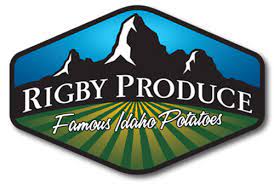Retailers continue to invest in infrastructure and programs to support the growth of online grocery.
Lucky’s Market is launching same-day delivery in six states, facilitated by Shipt. That service will be available in markets in Colorado, Florida, Georgia, Iowa, Missouri and Montana. The availability of same-delivery will expand in 2019 to more Midwestern markets and some new store locations.
“Lucky’s Market was founded on the idea that healthful foods should be more available to more people,” Ben Friedland, vice president of marketing, said in a release. “Through this partnership, Lucky’s Market Delivers makes shopping for good food more convenient in the communities we serve. We are thrilled to be offer more choices and be a better resource to our customers through the Shipt platform.”
Meanwhile, Walmart announced that it has partnered with Ford to pilot grocery delivery with self-driving cars in the Miami area.
“Walmart and Ford agree autonomous vehicles have an important role to play as we consider the future of delivery,” Tom Ward, senior vice president of digital operations of Walmart U.S., said in a blog post. “Before self-driving cars can go mainstream, we must get a better sense of how people want to interact with them. Together, we will gather crucial data to learn the best way to bring items to customers.”
Kroger — in addition to testing Nuro self-driving vehicles for grocery delivery in Scottsdale, Ariz., and partnering with Ocado Solutions to build automated microfulfillment centers around the U.S. — recently announced on its technology-focused LinkedIn page that shoppers can now use Google Assistant to interact with banners Fred Meyer, Fry’s Food and Drug, QFC, King Soopers and Ralphs.
Ahold Delhaize is partnering with Takeoff Technologies to pilot the use of robot-run microfulfillment centers and expects major growth of e-commerce food sales in coming years, according to presentations made during Ahold Delhaize Capital Markets Day 2018.
In another move that employs technology to improve customer experience, Schnuck Markets has expanded its use of shelf-monitoring robots, which are not used for fresh produce currently but help stores free up employees to focus on shoppers.













